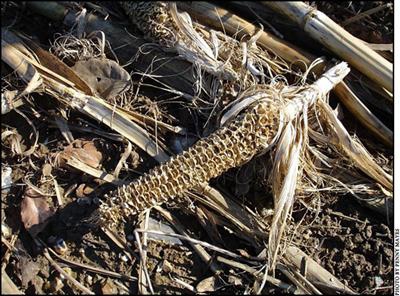
BioFuelNet Canada responds to biofuel study
September 7, 2016
By BioFuelNet Canada
Sept. 7, 2016 - BioFuelNet Canada strongly disagrees with the findings of a recent study by Professor John DeCicco from the University of Michigan and colleagues which states that biofuels are worse than gasoline in terms of greenhouse gas emissions.

In the controversial study, researchers DeCicco and colleagues claim that biofuels emit more CO2 than they absorb. However, BioFuelNet researcher Dr. Joann Whalen observes that the methodology used is inconsistent. When they calculate the CO2 emissions going into the atmosphere, they consider all parts of the plant: leaves, stalks, roots, grain etc. In return, when they calculate the uptake or storage of CO2 in the plant, they only consider the grain. Therefore there is an imbalance in the calculations, misleading the readers to think that biofuels are not carbon-neutral.
The carbon accounting in the study is fundamentally flawed, which generates a skewed picture of the carbon-neutral biofuels by conveniently ignoring a fundamental biological truth – crops produce more than just grain! Not to mention that the study is funded by no other than the American Petroleum Institute.
When plants grow, they take CO2 out of the atmosphere and produce the stalks, leaves, roots, grains. In corn and soybean for example, leaves, stalks and other non-edible parts contain even more carbon than the grain itself. Although grain is harvested, the non-harvested residues are left in the field. This biomass contains stored carbon that is gradually decomposed in the next years, some of which is released as CO2 and the rest becomes part of the soil organic carbon.
Accounting for the ‘missing carbon’ will go a long way to bring the findings of this study in line with the prevailing scientific opinion that those who plant and grow crops – namely the agriculture and forestry sectors – should get credit for the carbon gained from photosynthesis in all crop biomass, not just the portion that is harvested for biofuel.
BioFuelNet Canada is a network that brings together the Canadian biofuels research community to aggressively address the challenges impeding the growth of an advanced biofuels industry, while focusing on non-food biomass as biofuel feedstocks. BioFuelNet includes renowned, multi-disciplinary experts from academia, government, industry and investment working together in a concerted and synergistic way. This group is working to develop and apply novel and innovative science, engineering and socio-economic strategies that will enhance environmental sustainability for future generations.
Print this page